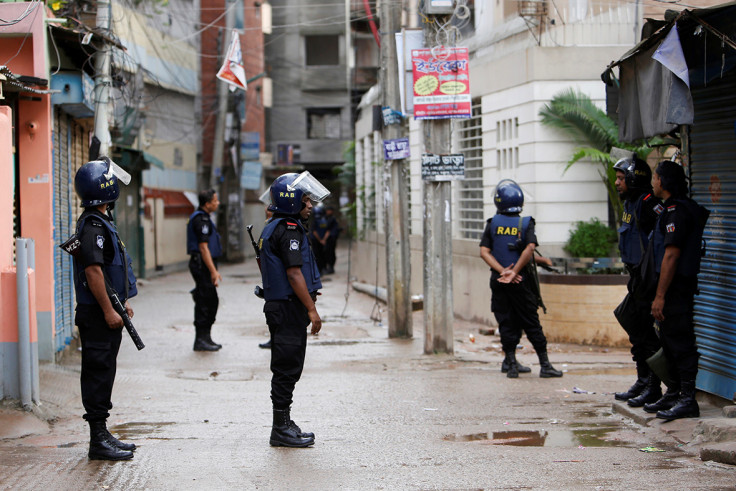Bangladesh says Dhaka cafe attack mastermind could be in India
Canadian-Bangladeshi man Tamim Chowdhury named as chief suspect could now be in India.

Bangladesh authorities have warned Indian security agencies that the mastermind of the Dhaka café terrorist attack could have fled across the border. The Bangladesh police chief's comments came on Monday (1 August) amid a nationwide manhunt for the Bangladeshi-Canadian Tamim Chowdhury who is believed to have been behind the Holey Artisan attack on 1 July that killed 22.
The chiefs of India's National Investigation Agency (NIA) have been warned about the situation and their security agencies have joined the manhunt. Most of the people killed during the terrorist attack were foreigners, with one Indian citizen among them.
Bangladesh police chief AKM Shahidul Hoque told the Press Trust of India: "We have alerted the Indian security agencies against [Tamim Chowdhury's] possible escape to India to evade the arrest."
The alert as to his whereabouts comes two days after he was officially identified by police as the mastermind of the attack. A raid on a terror hideout had revealed he holds both Canadian and Bangladeshi citizenship and had returned from Canada three years ago.
Hoque said: "Chowdhury could be the key operative of Isis (Islamic State) in Bangladesh."
However, Hoque added there was no proof that Isis carried out the recent terror attacks in Dhaka. Although Isis has claimed responsibility, Bangladeshi authorities have dismissed the link, pointing the finger at banned local militant group, Jamaeytul Mujahdeen Bangladesh (JMB).
Five terrorists were shot dead during the attack, but their families have not come forward to claim their bodies. A further nine presumed militants were killed during the police raid on 26 July, where Chowdhury was identified as a man in his mid-30s.
Many in Bangladesh were shocked after it was revealed that the attackers were from educated, wealthy families. One of the attackers was identified as the son of a Bangladeshi politician, who said that he had "no inkling" about his son's radicalisation.
© Copyright IBTimes 2024. All rights reserved.






